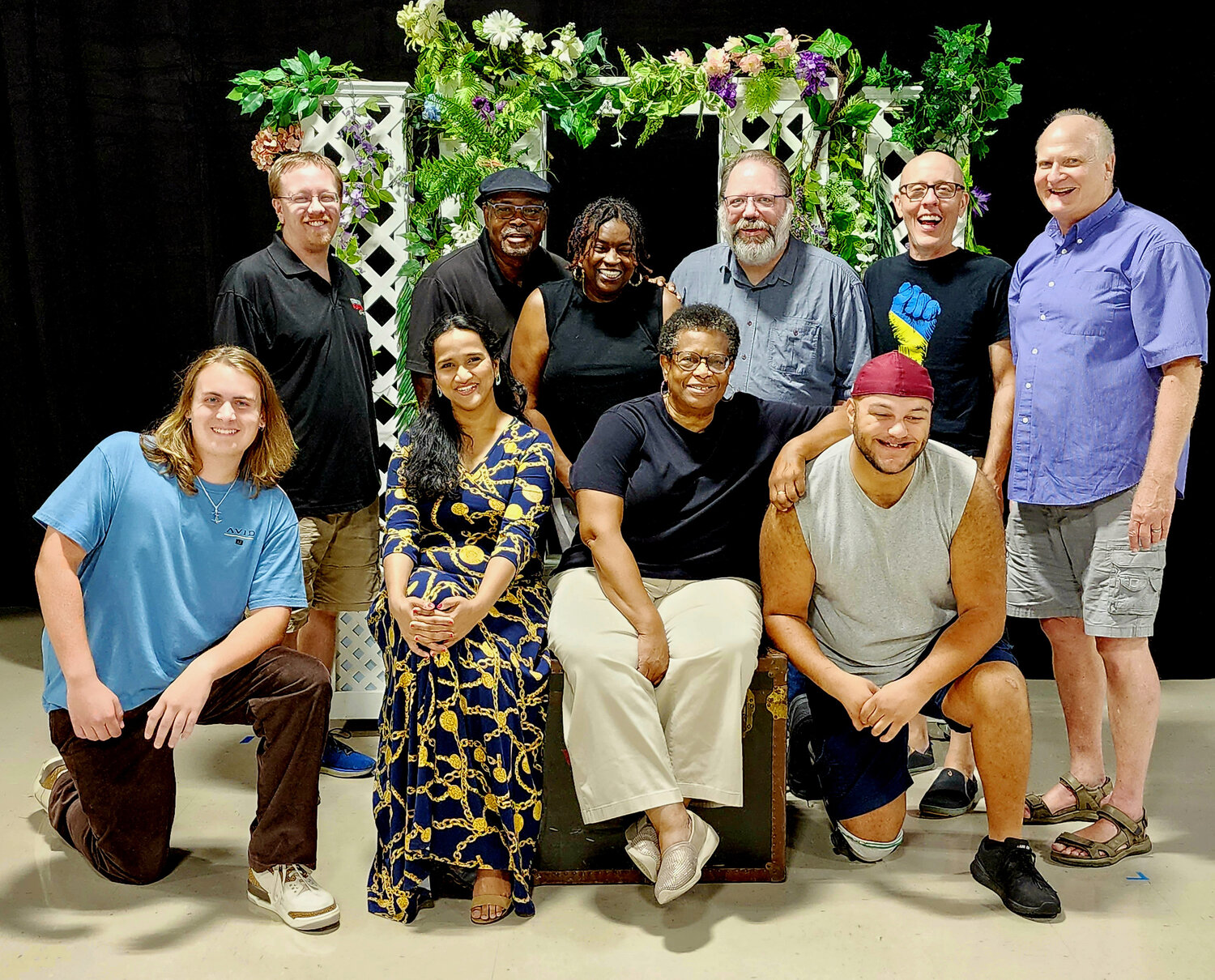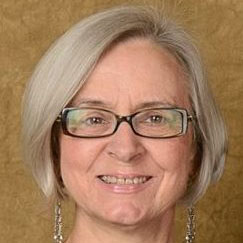Community Players delve into Shore history with ‘Pathways to Freedom’
As 18 th century author Jonathan Swift once said: “Everything old is new again.” It was true then and it’s true today.
Take, for example, book banning. Do you know which novel …

You must be a member to read this story.
Join our family of readers for as little as $5 per month and support local, unbiased journalism.
Already a member? Log in to continue. Otherwise, follow the link below to join.
Please log in to continue |
Community Players delve into Shore history with ‘Pathways to Freedom’
As 18th century author Jonathan Swift once said: “Everything old is new again.” It was true then and it’s true today.
Take, for example, book banning. Do you know which novel is believed to be the first banned book in the United States? Here’s a hint: It was written by an abolitionist just before the start of the Civil War and published in 1852.
That abolitionist and author was Harriet Beecher Stowe, and the novel she wrote is called “Uncle Tom’s Cabin.” And although this may not be true of every book that’s ever been banned, “Uncle Tom’s Cabin” was unabashedly written with a political agenda: to end slavery in the United States.
Not surprisingly, given the political climate in a polarized mid-19th century America, it was banned in many states the same year.
The story follows the fate of Uncle Tom, a fictional character based on the real-life Josiah Henson who shared his life experiences with the author. Henson’s name became synonymous with “Uncle Tom” after the book was published. Although originally regarded with respect and admiration, the term became a racial slur that suggests a spineless black man whose demeanor is too subservient and deferential to whites. The female counterpart to the slur is Aunt Jemima.
“This was the best-selling novel of the century,” said Matt Bogdan, “it’s been adapted to the stage far more times than any other book of its time.”
Written and directed by Bogdan, and produced by Sharon Benchoff, both of whom are longtime Community Players of Salisbury veterans, “Paths to Freedom” begins with references to the landscape of the Shore, which held advantages for freedom-seekers, and the heroic individuals, some famous and others not so much, who made these escapes possible.
“As I was researching this project,” said Bogdan, “I came across Samuel Green, who was born a slave in East New Market, Maryland. He was a pastor of a local church and a member of the Underground Railroad.”
In 1857, Green was accused of helping a group of fugitives known as the Dover Eight. When authorities searched Green’s house, they did not find the fugitives but they did find a copy of “Uncle Tom’s Cabin.”
“At this time in our history, it was illegal for a black person – free or enslaved – to be in possession of anti-slavery literature,” Bogdan said. “(Green) was arrested, convicted, and sentenced to 10 years in prison – simply for possessing a copy of the novel.”
This intriguing tidbit led Bogdan to adapt to the stage numerous scenes from the book, with monologues and dialogues that illustrate Tom’s plight and depict his encounters with Eva and Simon Legree, along with the flight of George and Eliza Harris and their son – runaway slaves who are pursued by slave catchers and assisted by Quakers and members of the Underground Railroad.
“In the play I use the exact words of Harriet Beecher Stowe,” Bogdan said. “I wanted to bring an authentic version of this classic novel to the stage.”
Benchoff uses projected historical images from the novel and the era to enhance and complement the storytelling on the stage.
Stowe was a fierce abolitionist, and the biggest villain of the story, like Uncle Tom, Simon Legree, is not fictional. The characters, whether actual historical figures or fictional, represent the suffering and reality of many enslaved families and individuals during that era.
Harriet Beecher Stowe, plants a few ideas that remain relevant today. She encouragers her readers to pray for our country, to take action rather than turn their backs on enslaved people, and to become part of the solution by helping those who need it. This was no small request, as those who lived in Northern states could be imprisoned or fined for helping slaves to escape; in the South, offenders could be hanged or burned alive.
“I did watch a production of Uncle Tom’s Cabin,” said Frank Armistead, who plays Uncle Tom. “I found there are misperceptions about the character Uncle Tom even among the black community.” Armistead is new to Community Players, but has some acting experience from his college years at Kansas State University.
“Uncle Tom rescued a little girl, Eva, who later in the story died,” said Armistead. “Tom is kind of pious, he believes in the Lord, and so when his master, Simon Legree, tries to make him a slave driver, a higher position, he balks at whipping or beating the other slaves.”
This eventually leads to his demise.
“It’s a challenging role,” Armistead said.
Armistead is not the only newcomer to this Players production, which features a diverse cast of actors.
Juanita Mallard, also new to Players, said she always wanted to be an actor but ended up with a career in the military. Now retired, she plays the role of Prue, an enslaved woman who was befriended by Tom during the production. Prue was a “breeder” who gave birth to numerous babies that were taken from her and sold as soon as they were old enough. She finally confided in Tom that she had given birth after arriving at the master’s plantation, but the baby starved to death. Prue had taken to drinking to mask her pain.
“Tom is such a positive person who always sees the best in everyone,” Mallard said. “I think the hardest challenge in this role is to show the emotions Prue must have felt while telling her story to this stranger named Tom, putting expressions on my face and feeling (Prue).”
Maria White, who plays the role of Cassy, was a Thespian for a short time while attending Wicomico High, where she graduated in 1974. Since then, she’s performed recitations of African poetry written by the likes of Paul Lawrence Dunbar and Maya Angelou.
“Cassy has a lot of pent-up emotion because she’s seen a lot and done a lot, but hasn’t really been able to be vocal enough about it,” said White. “When I first started reading the lines, I cried a lot. And when she does talk about it, she gets a lot of it out. She even tries to help others, including the slave master. I like acting and I guess that’s part of it – trying to get into the minds of the people you are portraying.”
Judy Hearn plays the role of Marie St. Clare, the mother of Eva, the little girl who befriended Tom after being rescued by him. Marie is not like her daughter, though.
“To me, there is great irony in the character’s name, because of St. Clare of Assisi, who was born to a wealthy family but gave it all up to start an order of nuns and live among the poor,” said Hearn. “Marie is the exact opposite – self-absorbed, believing everyone should cater to her. She believes slaves are the lowest of the low. She’s basically a spoiled brat.”
Hearn enjoys playing the bad guy.
“And here I am again, playing my favorite role,” she said.
Like Hearn, Jason Bruce is a longtime Players member. He plays the role of Simon Legree, the real-life slave owner without a conscience.
“I basically play one of the worst characters in literary history,” said Bruce. “Legree has a lack of empathy for anyone but himself. He gives the order to beat Uncle Tom to death. My monologue as Legree is about how slaves are nothing but property. Legree doesn’t waste money trying to give them any comfort. Legree is so far down on the moral ladder, he doesn’t even think they are worth keeping alive. He gets what he can out of his slaves and buys more when he’s gotten all he can get out of them.”
Will Townsend, a young actor with a few Players productions under his belt, plays George Harris.
“Harris is kind of inserted into “Uncle Tom’s Cabin,” sort of a real person but just a sidebar,” said Townsend. “It’s been a challenge to memorize a long monologue after joining the cast sort of at the last minute.”
The monologue is directed at his character’s wife, Eliza, who crossed the Ohio River to escape slavery.
“I feel like this role is more empowering and more personal,” said Townsend. “I’ve heard stories about slaves but my great grandmother experienced segregation and Jim Crow. It’s humbling to look at something like this and try to channel it.”
Townsend pointed out that in his past roles, anyone could have played, but this one is different.
“To put someone who is not African-American in a role like this just doesn’t make sense.”


 By
By 



